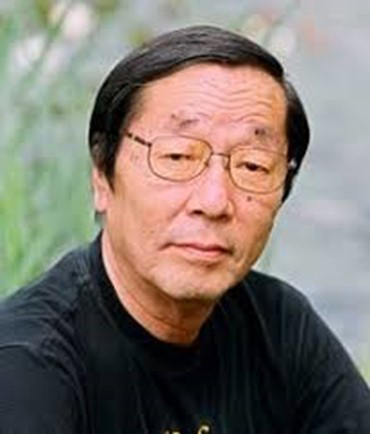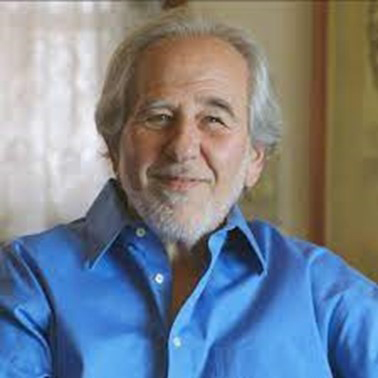Masaru Emoto, Water Crystals, and Our Health and Wellbeing

Masaru Emoto July 1943 – October 2014
Masaru Emoto was a businessman born in Yokohama, Japan. During the 1990s, after receiving the rights to a magnetic resonance analyser, he started studying and experimenting with water crystals, with the results later published in a book called. “Hidden Messages in water”.
Emoto was no scientist, and his work has been neither peer-reviewed nor evaluated in any conventional way by scientists. As a result, mainstream science described Emotos’ work as ‘non-scientific quackery’.
What Emoto did, was look at the crystal structures of frozen water from various sources through a microscope. These water crystals were formed from the most common substance on earth and are very beautiful and intricate. He photographed the frozen water images from places like Lourdes in France, bottomless caves, and remote springs. He found that healthy water generated stunning crystal structures.

Emoto also took photographs of inert, lifeless, distilled water and from sources where the water was polluted, finding the crystals to be simple, underdeveloped, or with no structure at all.
He conducted experiments to understand what external influences could have on the crystal structures. For example, he took polluted water and played classical music next to it before freezing it and examining it under the microscope. The results were that the crystals had better development. The same was true when he spoke to the water, prayed next to it, or gave it a label, such as ‘beautiful’. Emoto reported that the polluted water showed signs of improvement on each occasion.
Animals are made mostly of water. When we are conceived and become an embryo, science tells us that we are 95% water. By the time we are born, we are between 60% and 70% water, roughly the same percentage covering the earth.
If we take Emoto’s work and relate it to our bodies, we must conclude that our environment and the things we are in a relationship with have a massive mental and physiological impact on our health and wellbeing, far beyond our comprehension.
My point is that with Emoto’s work, the result of kind words, beautiful music or prayer was visible over a short period. For humans emersed in our environment, toxicity is not observable, taking longer sections of our lifetimes to emerge, with often terrible consequences.
Interestingly, this idea is only starting to make it into the mainstream. Many have been trying to wake us up before now. Dr Bruce Lipton, for example, a former Stanford University researcher into epigenetics, discovered that our environment influenced our cells through a membrane and directly impacted the cells’ ability to thrive or be deprived. Lipton has also been consigned to the fringes of medical science, but books are popular, nonetheless.

Dr Bruce Lipton
In organisational leadership terms, this means that the way we communicate, the words we say (or don’t say), and our general demeanour toward others directly affects their wellbeing, health, and ability to perform.
As Bruce Lipton says, we should spend some time taking stock and asking ourselves:
“How are we spending our time as individuals?
“How are we cultivating our teams so they thrive and prosper?”
“Are our activities producing a return on personal investment?”
“Are we wasting our time on accruing power and control based on feelings of fear and anger?”
From a leadership or coaching perspective, getting in touch with the things that make us thrive is all about getting Person-Centred. Our own positive self-regard is a key factor in making good, healthy choices about the environment we want to exist in. However, we depend on those around us so much for positive regard that they can influence our wellbeing by withholding or threatening to withhold the love and acceptance we need. Therefore, our state of wellbeing is fragile and susceptible to damage from those around us who do not take care through empathy or emotional intelligence. We can withdraw from our true, authentic self to fit in with those who would seek to control our self-worth. This is the world of the toxic manager. For the sake of your health, stay away from poisonous management.
To finish off, looking after your health and wellbeing has never been more critical as we are surrounded by negativity from a variety of sources such as the media and work place. As leaders, we must create environments where people can thrive and be healthy.
Seek out toxic-free environments and value your true authentic self. This isn’t just something that happens overnight or is a destination. Instead, it is a life’s work on an endless journey.
If you enjoyed reading this post, please look at other interesting titles linked below.
What makes a great executive coach?
The big ten questions to ask when looking for a coach
If you have considered coaching and/or mentoring, please drop me a line. I am offering free 30-minute sessions to establish if there is a need in the business community to assist with the unprecedented and rapid changes we all find ourselves in.
These sessions can be booked in with me directly via email andrew@woodward-consulting.net
In addition, You can find more about becoming an authentic leader in “Revealing the Leadership Secrets For A Successful Business: Lessons from high performing business leaders” which is free to download from https://woodward-consulting.net
#mentalhealth #hiddenmessages #thriveonpositivity #coaching #leadership
Revealing the leadership secrets for a successful business
Lessons from high performing business leaders
